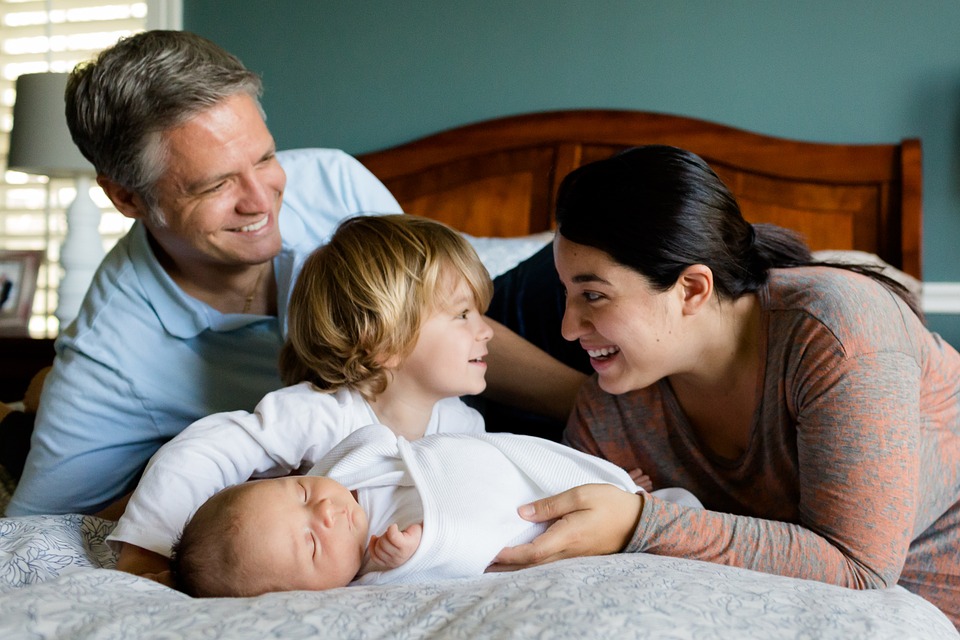How to Raise a Happy Kid? Love your child
Studies conducted over the past ten years emphasize the link between parental love received in childhood and human health and happiness in the future.
Scientists have confirmed the idea that the warmth and affection that parents give their children has a positive influence on the formation of their personal qualities, character and worldview.
The children who get enough parental love in childhood have high self-esteem, good school performance, more trusting and close relationships with mom and dad, and have fewer psychological and behavioral problems.
Children of non-affectionate parents usually develop low self-esteem and feel more alienated, hostile, aggressive and antisocial.
In 2010, researchers found that the children of very affectionate and attentive mothers grow up happier, livelier and less anxious. The study involved about 500 people who were observed from infancy to 30 years.
When the children were eight months old, psychologists observed the interaction of mothers with them during developmental assessment. Psychologists rated the affection and attention level of mothers according to a five-point scale. Almost 10% of mothers showed a low level of affection, 85% showed a normal level of affection, and about 6% showed a high level of affection.
Then, 30 years later, those children gave an interview in which they talked about their emotional health. The adults, whose mothers had received excellent and good grades from experts were much less likely than others to experience stress and anxiety. They were also less likely to report bouts of hostility, social problems, and psychosomatic symptoms.
As a result, the researchers concluded that the hormone oxytocin is the cause of the positive effect of parental love on children.
Oxytocin is a chemical substance in the brain that is released when a person feels love and close spiritual connection. It is this hormone that adds a sense of trust and support to the communication of parents with children, as a result of which the child experiences more positive emotions.
Next, a 2013 study at the University of California, Los Angeles, showed that parents’ unconditional love and affection can make children emotionally happier and less restless. This is due to changes that occur in the brain at the cellular level.
On the other hand, the negative effects of child abuse and lack of attachment affect children both mentally and physically. Lack of the sufficient amount of parental love, warmth and tenderness can lead to all kinds of physical and emotional problems that a person will have to fight throughout his life.
So, what conclusions can be drawn from the results of these studies? And how can you give children more love and affection every day?
1. From the moment you bring the baby home from the hospital, be sure to hold it in your arms as often as possible, touch it, do a massage.
The positive effects of skin-to-skin contact are difficult to overestimate. Therefore, do not neglect every opportunity to touch the newborn – this is the best thing you can give the baby in terms of education at this age.
2. Be playful with an older child.
When the baby grows up a bit, play fun games with him, fool around, dance together, draw, assemble constructors, etc.
3. Make hugs an integral part of your daily life.
In the recent Trolls movie, the main characters had a clock with alarms that reminded every hour that it was time to hug. Take the example of good-natured trolls and don’t forget to hug your kids. For example, make it a rule to do this at certain points of the day, for example, before leaving for school, after returning from school, and before going to bed.
4. Even when disciplining a child, demonstrate your affection.
When you tell the child that he did something wrong or behaved ugly, put a hand on his shoulder and hug him at the end of the conversation to show that even if you are unhappy with his action, you still love him.
Finally, we must say that one has to be careful even with affection – not to overdo it and not to “strangle” your children with it. Respect their individual level of comfort and remember that at each stage of growing up, the needs of the child change, which means that you also need to reconsider and adapt your attitude to them.



